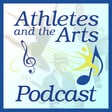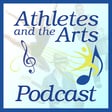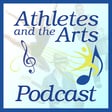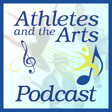
The Classically Trained Trainer with Ash Wang
Join Yasi and Steven as they welcome strength & conditioning coach Ash Wang onto the show. They discuss Ash's career journey through classical violin training, studying neuroscience, making Soulcycle playlists, building a strength and nutrition coaching business, writing her recipe book, and following her intuition all along the way.
For Ash's book "Alimentary: A Nutrition and Recipe Companion For the Athlete", go to https://www.ashwang.fit/shop
For Ash's website, go to https://www.ashwang.fit
Instagram: @ash_lucy_wang
Bio: Ash Wang comes with 7 years of professional experience in the health industry, alongside an educational background in Neuroscience and classical violin.
She started her professional journey with in-person training and group fitness in the high-octane NYC market and has since transitioned her business to being solely-based online, removing geographical barriers. Ash coaches individuals from all walks of life, improving nutritional habits and training performance.
Ash’s fitness journey began in dingy college gyms, not knowing the difference between a barbell and a dumbbell, experimenting with different styles of strength-training and dabbling in “powerbuilding” for years. At 25, she landed on the sport of Olympic Weightlifting and has fallen in love with the obsessive, technically complex, and thrilling nature of the sport — She has not looked back since.
Outside of the gym, Ash is an avid consumer of scientific research literature, spending too much time (and money) at her local coffee shop delving into various topics of interest including, but not limited to, gerontology, food politics, and food history. In her spare time, she loves writing and creating art.
She published her first Nutritional Coaching Guide & Recipe Book, and the hardbound edition comes out January 2025.



